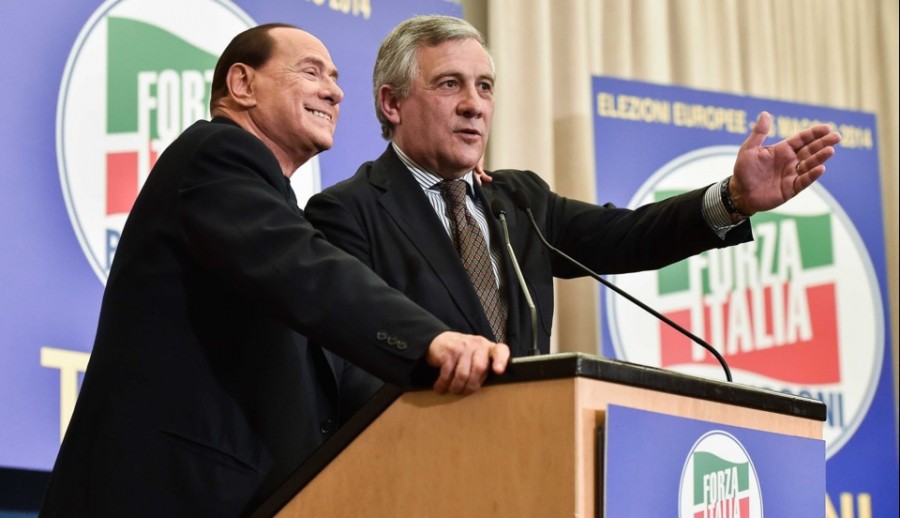Brussels – Silvio Berlusconi died this morning in Milan’s San Raffaele hospital at the age of 86 from various tumor-related complications. Battling, decisive, but nevertheless unpredictable and provocative. Berlusconi and Europe, not a simple relationship marked by the temperament of a Prime Minister who was often over the top, often above the institutional profile, the centre of attention, for his political actions, but also much, above average, for his personal events that inevitably ended up being projected into the European debate. The emblematic example was on 2 July 2003. Italy, with Berlusconi at the head of the government, had just taken over the rotating presidency of the EU Council, and in the European Parliament chamber a then little-known Martin Schulz accused the knight of conflict of interest. Berlusconi could not help but respond. “Mr Schulz, I know that in Italy there is a producer who is editing a film about Nazi concentration camps: I will suggest you for the role of kapò. You are perfect!” The Chamber revolts, the statements remain consigned not only to the minutes of the session, but also to the chronicle of the whole of Europe, enriched by the insult to the entire Chamber, defined by Berlusconi as a complex of ‘democracy tourists’.
The political-institutional clash of 2003 is only one episode in Berlusconi’s career in the European forum, where partners begin to regard him for his manner. He already offered a taste of himself on 8 February 2002, at the Caceres (Spain) summit of foreign ministers, which he attended as interim minister (Renato Ruggiero had resigned a month before). Here he makes the horns gesture in the family photo. Image going round the world. Just as the image of Berlusconi literally abandoning Spanish Prime Minister Luis Zapatero in the press room at Palazzo Chigi on 10 June 201o, at the end of an official visit to Italy, has gone around the world. He decided not to take questions from the reporters, to whom he offered the Spanish Prime Minister, before walking off and leaving him there all alone, to the disbelief of the host.
The foreign press reads the incident as institutional discourtesy, but Zapatero is neither the first nor the only European leader to have to deal with Berlusconi’s temper. In November 2008, the Italo-German summit was held in Trieste, and the host during the ceremonial hid behind a column and then welcomed the then Chancellor Angela Merkel with a ‘cuckoo’. Speaking of Merkel, in 2011 the newspapers wrote that Berlusconi had used less than flattering expressions about her. He denies it, but in the meantime, stories and colourful expressions go around the world, and are added to the Bunga bunga affair, dated 2009, following which the political career of Mirek Topolanek, the Czech Prime Minister, who was present at Berlusconi’s ‘hot’ private party at villa Certosa, came to an end.
Berlusconi’s Europe also tells of partners who pay close attention to the Italian head of government’s relations with the leaders of Russia, Belarus, Kazakhstan and Libya. Vladimir Putin, Alexander Lukashenko, Nursultan Nazarbayev and Muhammar Gheddafi are edgy interlocutors, with whom Berlusconi plays the realpolitik card right from the start. On 28 May 2002 at Pratica di Mare, he invited the Russian president to the NATO leaders’ summit, acting as mediator with the then US president, George W. Bush. The result was a cooperation agreement, the NATO-Russia Council, which, in Berlusconi’s narrative, put an end to the Cold War.
With the Libyan leader Gaddafi decides to relaunch bilateral relations, necessary to curb migration flows, and tries to rewrite relations with two of the main former Soviet republics on a bilateral basis with a common value. He understands that Europe’s security depends on the stability of those countries and areas, but his personal image, in the eyes of his EU partners, is irreparably compromised, despite the fact that he was the first EU premier to bring the issue of immigration to the leaders’ table. Not least because in the meantime the national situation, in the wake of the sovereign debt crisis, worsens. In the summer of 2011, the markets start betting on the bankruptcy of Italy, whose debt has grown. In a letter, the European Union demands action. It grants time until the end of the year for measures to reassure markets and partners. On 26 October, at the ‘truth’ European Council summit, where Italy’s anti-crisis plan is expected, Berlusconi is immortalised by the internal cameras intent on studying the back of the then Danish prime minister, the socialist Helle Thorning-Schmidt. At the end of the summit, the joint press conference of the leaders of Germany and France reveals how much the partners trust Berlusconi. Angela Merkel and Nicolas Sarkozy are asked if they feel reassured by the measures outlined by the cavaliere. The two look at each other and smile. Images, once again, that go round the world.
In Europe, Berlusconi was all that, because that is what we remember. Yet it was he who wanted Antonio Tajani as European commissioner, first for Transport and then for the Internal Market. An apt choice, given Tajani’s career in Brussels. Berlusconi left the scene as Prime Minister in November 2011, following a vote of no-confidence on which the smiles of the leaders of France and Germany weighed heavily.
He remains at the head of Forza Italia, however the point of reference of the European People’s Party, of which the knight has been a pillar, even if the collapse in domestic consensus reduces the party’s weight within the family of the European centre-right. In 2019 (after a first mandate between 1999 and 2001) he returns to Europe, as a MEP. In this new role, he stands out for his statements on the presidents of Russia and Ukraine. In the midst of a war, and with the EU adopting unprecedented sanctions packages to come to Kiev’s aid, Berlusconi reiterates his closeness to his friend Putin. “I, if I had been Prime Minister, would never have gone to talk to Zelensky,” he says on 12 February this year, producing an earthquake within the European People’s Party of which Berlusconi has been a point of reference for decades. Not only that. In defiance of the sanctions, Berlusconi claims to have exchanged bottles of lambrusco with Putin for bottles of vodka, arousing the irritation of the European Commission. Another outing that does not help the way Berlusconi is remembered outside the country. So much so that the EPP cancelled an event planned in Naples in March this year, precisely because of Berlusconi’s stance on Russia.





